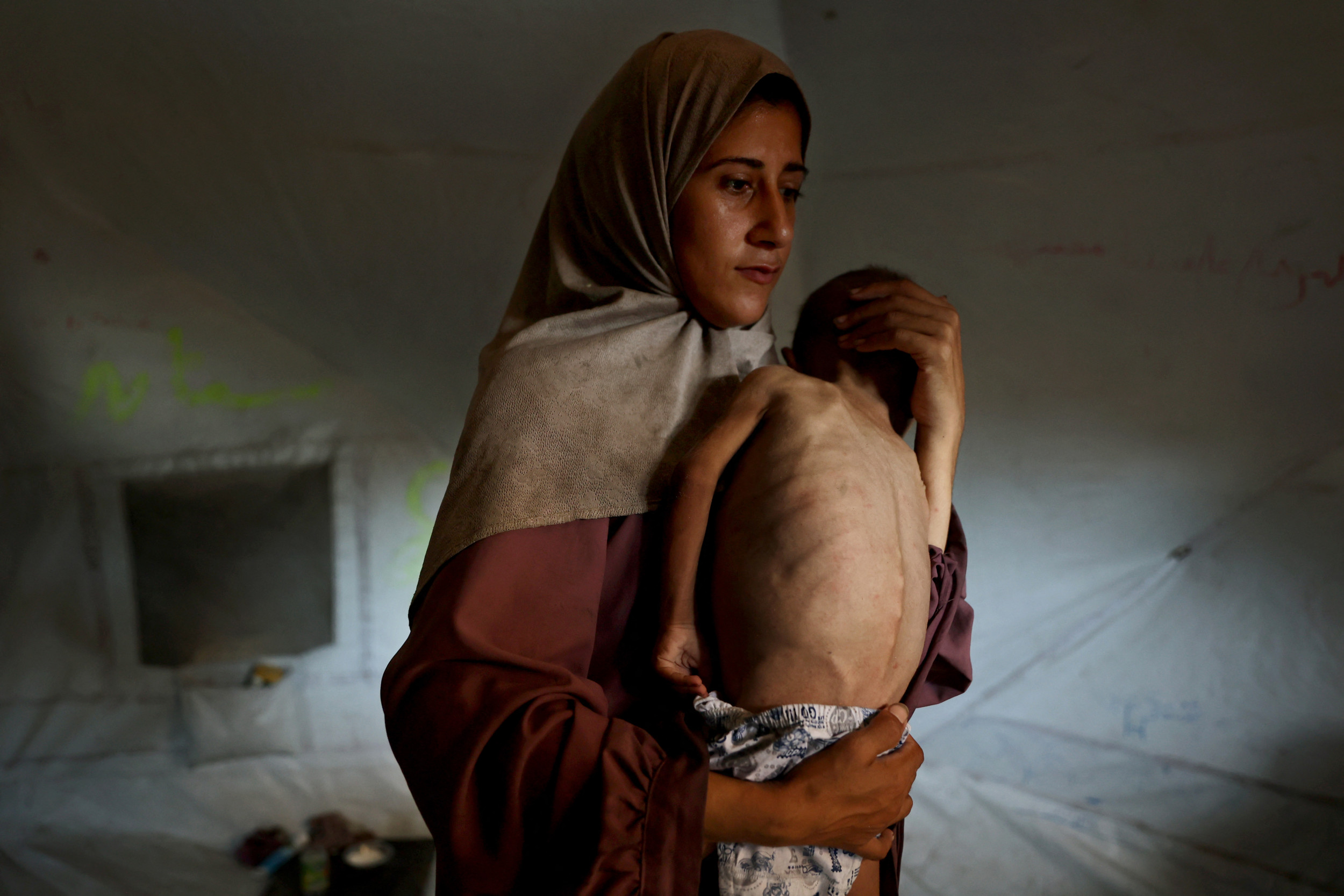🎙️ Voice is AI-generated. Inconsistencies may occur.
After President Donald Trump's "Big Beautiful Bill" brought in some of the biggest healthcare spending cuts in American history, there has been growing concern about how many rural hospitals, both those already at risk of closure and others, will shut as a result of the financial burden shifted to states and what that will mean for local communities.
The major budget bill cuts around $1 trillion from health care spending over the next decade, with the Medicaid program taking the biggest hit.
Nearly half of all rural hospitals across the country were already struggling financially before these new cuts were brought in.
A Department of Health and Human Services spokesperson told Newsweek: "As mentioned in Dr. Oz's X post, 'The OBBB spends an additional $200 billion more on Medicaid moving forward than is spent this year. The only thing it eliminates is waste, fraud, and abuse.'
"HHS remains committed to ensuring that Americans, especially those in rural and underserved communities, can access the care they need, when they need it," the spokesperson added.
How Will the Bill Impact Hospitals?
As the bill will see the federal match rate reduced for states that expanded Medicaid, as well as broader cuts, those states will be placed in a more difficult financial position— potentially slimming down services or allowing hospitals to close down.
While some hospitals may merge with larger hospital systems to "weather the storm," many will look to "cut specific services and departments to save costs," Michael Shepherd, a professor of health management and policy at the University of Michigan, told Newsweek.
Shepherd said that for rural hospitals, labor, delivery, and obstetrics are often cut first due to lower birth rates in rural areas, while mental health services and intensive care units could also be stripped back.
"Most of the hospitals that will close in the coming years will be hospitals that are already struggling financially," he said.
But, the implications on Medicaid threaten to "spread these closures nationwide once again," Shepherd said. "We may observe even higher rates of closures in the coming year."
The wide-reaching effect of this could spark "intense focus on opportunities to both pursue greater efficiency and to increase different revenue sources," Elizabeth Merwin, executive director of the Center for Rural Health and Nursing at the University of Texas at Arlington, told Newsweek.
It may also increase the percentage of uninsured individuals, which is "a risk for both hospitals and communities," requiring a development of "strategies to generate revenues and opportunities to support this population," she added.

Where Could Hospitals Be At Risk Of Closure?
The hospitals most at risk are in states that already had "the highest percentages of rural hospitals that are open but financially struggling," Shepherd said. These states include Texas, South Carolina, Louisiana, and Kansas.
Additionally, rural hospitals in states that are likely to experience the largest reductions in rural Medicaid coverage may struggle, such as Kentucky, North Carolina, Virginia, Illinois, Ohio, Pennsylvania, Michigan, and West Virginia, he added.
Rural hospitals that serve a large number of older adults, such as those in Northern New England, also "have an increased risk due to aging populations, higher per-capita reliance on Medicaid, and limited alternative healthcare options," Karen Fortuna, a professor of community and family medicine at the Geisel School of Medicine at Dartmouth, told Newsweek.
While Arkansas has not experienced the degree of hospital closures seen in surrounding states, the "fabric of our rural healthcare system is fraying because of increased personnel and supply costs, stagnant reimbursement, lower patient volume due to out-migration and shifts to outpatient care, and antiquated facilities," Arkansas Center for Health Improvement Interim CEO Craig Wilson told Newsweek.
"Even minimal healthcare coverage loss in rural areas would push hospitals into critical territory financially," he added.
Ultimately, "there is a risk to all hospitals, even those with better financial situations," Merwin said.
What Does This Mean For Communities?
The closure of more rural hospitals across the country will have a wide-ranging impact on local communities.
Communities would lose a point of access to multiple services, "which is not limited to inpatient hospitalizations, since rural hospitals are often the hub for outpatient services, emergency medical services, and even home health," Keith Mueller, a professor of health management and policy at the University of Iowa, told Newsweek.
Closures would also result in the loss of jobs, he added, which provide benefits such as health insurance.
"Any time an access point for acute care is lost, a community runs the risk of poorer health outcomes due to longer travel times for emergencies and other critical care," Wilson said.
Some studies have shown that mortality risk is higher following closures, much of which is due to the increased travel distances required to receive medical attention, Shepherd said.
"If you have a stroke or a heart attack, having an additional 45-minute commute can be the difference between survival and death," he added.
Other studies have revealed that the loss of hospitals has negative consequences on birth outcomes as well, Shepherd said.
The "likely decline" in access to physical and mental health care for vulnerable groups will see more patients "delaying care and accessing care at high-cost facilities such as emergency rooms," which can "drive up the cost of healthcare and lead to worse patient outcomes," Fortuna said.
What Options Do States Have?
States have a number of options to navigate the difficult path ahead. There is also some help offered in Trump's budget bill, as $50 billion has been allocated over five years to all states for a variety of purposes, including payments to rural facilities. However, these options are not without their complexities.
"States can attempt to raise more money within the state to bolster their Medicaid programs," Shepherd said. However, doing so requires raising taxes in "a political environment where that has become difficult to do."
He added that some states may consider rescinding Medicaid expansion "to save resources for those below the poverty line or cutting the number of services provided by their state's Medicaid program."
But, Shepherd said that "will not help hospital finances and will likely lead to increased 'uncompensated care' costs for the hospitals."
"More emphasis needs to be placed on identifying cost-effective care to ensure funds available are optimally used to meet the communities' needs," Merwin said.
She said that cost-effectiveness studies offer decision makers "needed information to understand cost in relation to outcomes that can benefit patients and communities."
There may also be a push for "telehealth expansion," Fortuna said, meaning patients would have access to digital care if hospital buildings have to close.
"The integration of artificial intelligence into health systems may be necessary to optimize scarce resources," she added. Ultimately, "to survive, rural health streams will need to innovate."
Some states are already beginning to act in light of the bill's passage. Some are "trying to maximize their federal matching dollars from Medicaid while they still can, bolstering state grant programs for rural health care workforce and facilities, and boosting Medicaid reimbursement rates," Carrie Henning-Smith, co-director of the Rural Health Research Center at the University of Minnesota, told Newsweek.
Regardless, though, "states face funding and policy limitations on what they can do to shore up their rural health care infrastructure," she said. "Without federal support and federal solutions, population health outcomes for the entire country may suffer."
While states have difficult financial decisions to make, Wilson said, "local communities will also need to engage in some difficult conversations about the extent to which they want to financially support their hospital to keep care local."
fairness meter
About the writer
Jasmine Laws is a US News Reporter at Newsweek based in London, U.K. Her focus is reporting on health insurance, ... Read more




